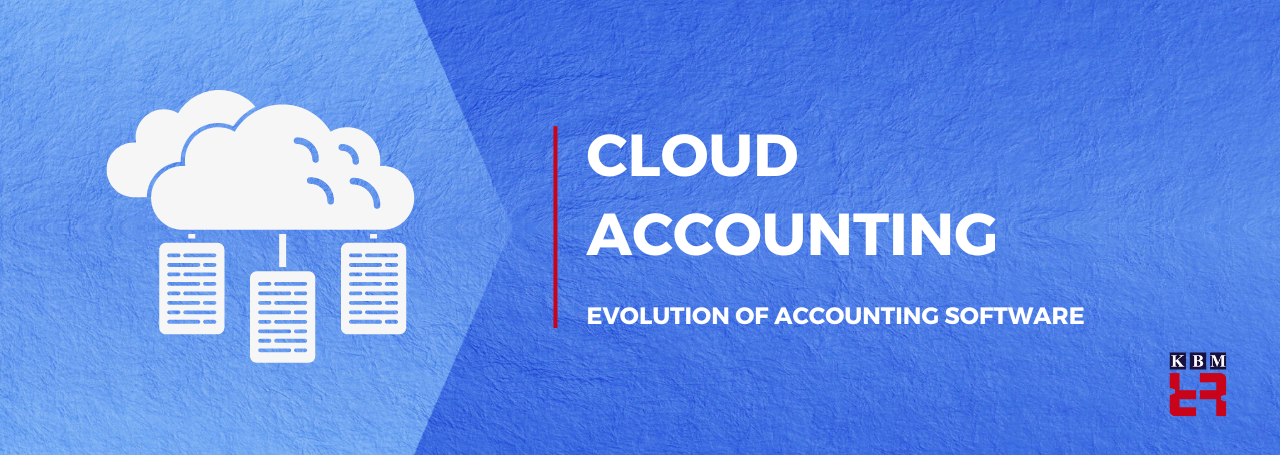The evolution of accounting software has been a game-changer in finance and business management. With the advent of cloud technology, accounting software has transitioned from traditional desktop applications to web-based platforms, revolutionising how businesses manage their financial data.
This article explores the evolution of accounting software, the benefits of cloud-based solutions, and critical considerations for businesses navigating this technological shift.
The Era of Traditional Accounting Software
Traditionally, accounting software was confined to desktop applications installed on individual computers. These software solutions were often standalone, requiring manual updates and backups. While they served businesses' basic accounting needs, they lacked scalability, real-time collaboration features, and accessibility from anywhere.
The Rise of Cloud-Based Accounting Software
The emergence of cloud technology brought a paradigm shift in accounting software. Cloud-based solutions, also known as Software as a Service (SaaS), revolutionised how businesses approached accounting. Here are some key features and benefits of cloud-based accounting software:
- Accessibility: One of the primary advantages of cloud-based accounting software is accessibility. You can access the software using any device with the internet, enabling remote work, collaboration, and real-time data access.
- Scalability: Cloud solutions offer scalability, allowing businesses to adjust their subscription plans or add/remove features as their needs evolve. This flexibility is entirely beneficial for growing companies.
- Automatic Updates: Cloud-based software providers regularly update their platforms with new features, security patches, and improvements. Users don't have to worry about manual updates, ensuring they always have access to the latest tools and functionalities.
- Cost-Effectiveness: Cloud-based accounting software often follows a subscription-based model, removing the demand for upfront hardware investments and reducing maintenance costs. Businesses can choose plans that suit their budget and scale as needed.
Key Features of Modern Cloud-Based Accounting Software
Modern cloud-based accounting software offers a range of features designed to streamline financial processes, enhance productivity, and improve decision-making. Some key features include:
- Real-Time Reporting: Cloud-based software provides real-time access to financial data, allowing businesses to generate accurate reports instantly. This enables informed decision-making and better financial management.
- Automated Processes: Many cloud accounting solutions automate repetitive tasks such as invoicing, expense tracking, and reconciliation. This automation reduces manual errors and frees up time for strategic activities.
- Integration with Other Systems: Cloud-based accounting software can integrate with CRM (Customer Relationship Management) software, inventory management, and payment gateways, creating a seamless ecosystem for data exchange and analysis.
- Collaboration Tools: Cloud platforms often include collaboration features such as multi-user access, document sharing, and commenting, facilitating teamwork and communication among finance teams and stakeholders.
Security and Data Protection
Security is a critical aspect of cloud-based accounting software. Providers implement robust security protocols to protect sensitive financial data.
These measures may include data encryption, multi-factor authentication, regular security audits, and industry compliance standards like the GDPR (General Data Protection Regulation), PCI DSS (Payment Card Industry Data Security Standard), etc.
Businesses considering cloud-based accounting solutions should carefully evaluate the security features offered by providers and ensure they meet regulatory requirements and industry standards.
Considerations for Choosing a Cloud-Based Accounting Solution
When selecting a cloud-based accounting solution, businesses should consider many aspects to ensure they choose a platform that meets their needs and aligns with their goals. Some key considerations include:
-
Scalability: Assess the scalability of the software to accommodate future growth and changing business requirements.
- Integration Capabilities: Determine if the software integrates seamlessly with other systems and applications used in the business.
- Data Backup and Recovery: Ensure the software provides robust data backup and recovery mechanisms to prevent data loss.
- User-Friendly Interface: Choose software with an intuitive interface and user-friendly features to enhance employee adoption and usability.
- Customer Support: Evaluate the quality of client support offered by the software provider, including responsiveness, expertise, and availability of resources.
The Future of Cloud Accounting
The evolution of cloud accounting is an ongoing process, with continuous innovations and advancements shaping the future of financial management.
Emerging technologies like artificial intelligence (AI), machine learning, and predictive analytics integration into cloud-based accounting software offer advanced insights, automation capabilities, and predictive forecasting.
As businesses embrace digital transformation and seek more efficient ways to manage their finances, cloud-based accounting solutions will drive productivity, agility, and competitiveness in the modern business landscape.
Conclusion
The evolution of accounting software from traditional desktop applications to cloud-based platforms represents a significant milestone in the digital development of accounting and finance processes. Cloud technology offers businesses accessibility, scalability, automation, and enhanced collaboration, revolutionising how they manage financial data and make informed decisions.
By embracing cloud-based accounting solutions and considering key factors when choosing a platform, businesses can navigate this technological shift effectively and unlock new opportunities for growth and efficiency.






















